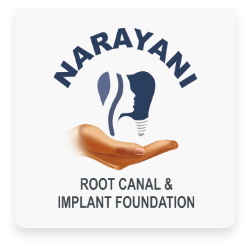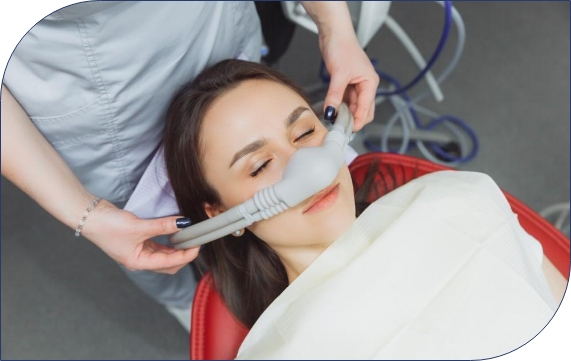
Ensuring Comfortable Dental Experiences through Sedation
Sleep dentistry, also known as sedation dentistry, is a specialized approach aimed at providing patients with a relaxed and anxiety-free experience during dental procedures. This technique involves the use of sedative medications to induce a state of deep relaxation, allowing individuals to undergo dental treatments without fear or discomfort. Narayani Dental Clinic is committed to ensuring the well-being of its patients and offers sleep dentistry as an option for those seeking a more comfortable dental experience.
What is Sleep Dentistry?
Sleep dentistry involves the administration of sedative medications to help patients achieve a heightened state of relaxation and calmness during dental procedures. While patients are not actually asleep, the sedation induces a state of deep relaxation, often resulting in the perception that time has passed quickly, creating a more comfortable and stress-free experience.
Procedure Overview
- Consultation: Begin with a consultation at Narayani Dental Clinic to discuss your dental concerns and any anxiety or fear associated with dental treatments. The dentist evaluates your medical history to determine the most suitable sedation option.
- Selection of Sedation Type: The dentist may recommend different levels of sedation based on the complexity of the procedure and the patient's anxiety level. Options may include oral sedation (pills), intravenous (IV) sedation, or inhalation sedation (nitrous oxide).
- Administration of Sedative: The chosen sedative is administered before the dental procedure begins. With oral sedation, you may take a prescribed medication before arriving at the clinic. IV sedation involves the injection of the sedative directly into the bloodstream, while nitrous oxide is inhaled through a mask.
- Monitoring During Procedure: Throughout the dental procedure, vital signs such as heart rate, blood pressure, and oxygen levels are monitored to ensure the patient's safety and well-being.
- Post-Procedure Monitoring: After the procedure, patients are monitored until the effects of the sedation wear off. It's essential to have a responsible adult accompany the patient to and from the appointment, as the residual effects of sedation may temporarily impair cognitive and motor functions.
Reasons to Choose Sleep Dentistry
- Alleviation of Anxiety: Sleep dentistry is particularly beneficial for individuals with dental anxiety or phobia, providing a calming and stress-free experience.
- Enhanced Comfort: Sedation ensures that patients remain relaxed and comfortable throughout the dental procedure, reducing the sensation of pain and discomfort.
- Increased Cooperation: Patients who may have difficulty sitting still or cooperating during dental treatments, such as those with special needs or young children, can benefit from sedation to ensure a smoother experience.
- Multiple Procedures in One Session: Sleep dentistry allows dentists to perform multiple procedures in one session, minimizing the number of appointments needed for extensive dental work.
- Memory Suppression: Sedation often results in temporary memory suppression, helping patients forget the details of the dental procedure and reducing the likelihood of developing negative associations with dental visits.
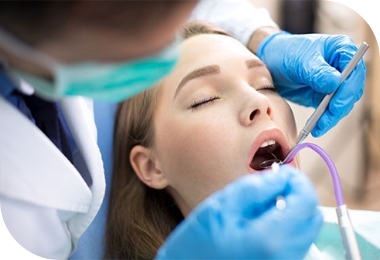
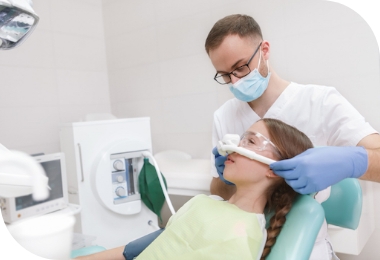
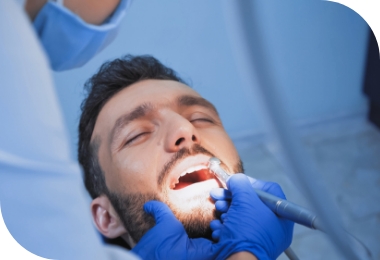
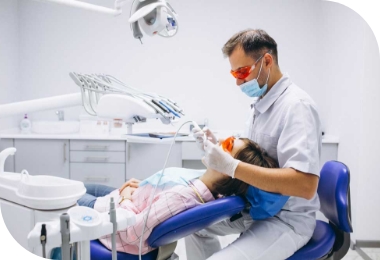
How Narayani Dental Clinic Can Help
Narayani Dental Clinic prioritizes patient comfort and offers sleep dentistry as part of its comprehensive dental services. Our experienced team of dentists is trained in administering various sedation options to ensure that each patient receives the most appropriate and effective method for their specific needs. The clinic's commitment to a positive patient experience extends to creating a calming environment, further enhancing the benefits of sleep dentistry.
FAQs
Yes, sleep dentistry is generally considered safe when administered by qualified and experienced dental professionals. The dentist at Narayani Dental Clinic will carefully evaluate your medical history and monitor you during the procedure to ensure your safety.
No, sleep dentistry induces a state of deep relaxation, but patients are not actually asleep. They remain conscious and responsive, allowing communication with the dental team.
The duration of sedative effects varies depending on the type of sedation used. With oral sedation, the effects may last several hours, while nitrous oxide wears off quickly after the mask is removed.
No, it is not safe to drive or operate heavy machinery after sleep dentistry. Patients must have a responsible adult accompany them to and from the appointment.
Depending on the type of sedation, the dentist may provide specific instructions regarding fasting before the appointment. It's essential to follow these instructions to ensure the safe administration of the sedative.
